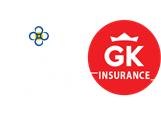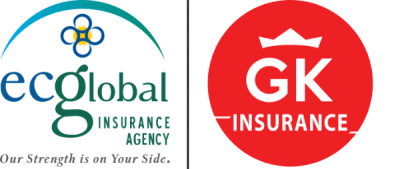FAQs
Click on any question to get started. If your question isn't here, use the search box at the top of this page to search for topics. Should you have any further questions, please consult our Contact Us page.
The price an insurance company charges for coverage, based on the frequency and cost of potential accidents, theft and other losses. Prices vary from company to company, as with any product or service. Premiums also vary depending on the amount and type of coverage purchased.
An excess is the first part of each and every claim or loss which is excluded or the amount of the claim which is deducted from each claim. That amount of the loss is born by the insured. Either a specified dollar amount or a percentage of the claim amount.
Deductibles on the other hand is a very large excess and it is common to see the word deductible rather than excess in commercial policies and home owners polices, whereas a number of you who have vehicle insurance would see the word excess. Nowadays, however, it is common to find the terms being used interchangeably.
Information that would affect an insurance company's willingness to accept a policy, or the premium it would charge. Failing to disclose a material fact could invalidate a policy. Typical examples include previous driving convictions or a history of subsidence in a house.
An insurance policy is a contract between you and an insurance company, in which the company promises to take over the financial costs of certain risks. The policy describes the item(s) covered, the risks you are covered against and specifies your rights and responsibilities, along with the terms and limits of the cover.
For an event to be insurable its happening must be accidental and not deliberate on the part of the insured. An example of a non-fortuitous event or loss is an insured intentionally setting his or her home on fire. The event must be fortuitous as far as the insured is concerned.
Indemnity is the legal principle that the policyholder should be restored to the same financial position that they enjoyed prior to a loss occurring. There are a number of options opened to an insurer which will provide the policyholder with the necessary indemnity and these are:-
- Cash Payment
- Repair
- Replacement
- Reinstatement
Click on any question to get started. If your question isn't here, use the search box at the top of this page to search for topics. Should you have any further questions, please consult our Contact Us page.
Your motor policy covers breakage of your windscreen or window up to a specified amount. There must be no other damage or injury apart from scratches caused by the shattering of the glass. Once this is the case the excess is not applicable and it will not affect your no claim discount.
This form is used by Insurers to gather information about the risk to be insured. For motor insurance some of the things insurers would be interested in are the person who owns the vehicle, the vehicle itself and the drivers. This will enable them to determine whether or not to accept a risk and the premium to charge. All the questions must, therefore, be answered truthfully and any material facts should be disclosed. A material fact is any information an Insurer would regard as likely to influence their assessment and acceptance of a risk.
Under the law, the Certificate of insurance is required as proof of the existence of insurance. It must be returned if the policy is suspended or cancelled. If it is lost, you should advise us immediately.
The law, which makes motor insurance compulsory, is called the Motor Vehicle Third Party Risks Law. The reference to third party is simply acknowledging that you have satisfied the legal requirements.
Click on any question to get started. If your question isn't here, use the search box at the top of this page to search for topics. Should you have any further questions, please consult our Contact Us page.
Some policies will pay for temporary housing if a hurricane makes your dwelling uninhabitable and the damage is caused by a covered peril. Most policies also will cover reasonable expenses for removal of debris and architects and surveyors fees. However you must request these additional benefits and there is usually an additional premium attached. Speak with your insurance company or broker regarding this cover.
You will only receive compensation for damaged furniture and other contents in your private dwelling if you have insured these and therefore they are insured by the company. Depending on the policy, coverage may pay for a new replacement item, or payments may be reduced based on the item's depreciation.
Damage to motor vehicles is not covered by a homeowner’s policy. Hurricane damage, including flooding damage, will be covered by your automobile insurance, provided your policy has ''comprehensive'' coverage.
Homeowners rates usually won't go up following a single hurricane. Rates are based on property insurance payments within the territory over the past several years, plus an amount held in reserve for a hurricane or other catastrophic event. Rates usually will be increased only after a series of large catastrophic loses that depleted this reserve. A homeowner's policy is not likely to be cancelled solely because of a hurricane. Companies could decide against continuing a policy if there were hazards on the property that aggravated the damages, such as dead trees or a faulty roof, and if there had been other losses on the policy in recent years.
- Immediately report all these incidents to the police and the Fire service, in case of fire.
- Where a crime has been committed do not tamper with any potential evidence before the arrival of the police
- Take photos where possible to show entry, exit and damage
- Contact our Claims Department or your broker representative as soon as possible List all damage / loss to building and contents.
- Locate and secure you insurance policy and any other personal contractual documents.
- Take photos of damage
- Secure premises with board, tarpaulins etc. to prevent further loss or damage to building and contents
- Keep all invoices and receipts for sums spent in securing the premises
- Contact our Claims Department or your broker representative as soon as possible for guidance
- Clean up debris Salvage as much as possible.
- Dry out electrical items, clothing etc.
- If necessary, use a generator to run essential electrical appliances e.g. freezers
- If the premises are rendered uninhabitable, seek reasonably priced temporary alternative accommodation. There is some coverage under your policy.
Click on any question to get started. If your question isn't here, use the search box at the top of this page to search for topics. Should you have any further questions, please consult our Contact Us page.
Independent calculation agents monitor the weather situation. High wind speed and rainfall are respectively monitored by the Caribbean Catastrophe Risk Insurance Facility (CCRIF) and DHI (formerly known as Danish Hydraulic Institute).
An early warning SMS will inform you of upcoming extreme weather events, allowing you to take appropriate precautionary measures to protect you, your family members and property. Within 4 days of a triggered event, you will also receive an SMS on your mobile phone informing you that you will receive a payout.
Yes, it is possible to buy insurance coverage for other persons. You will need to submit a duly completed LPP enrollment form together with the premium payment to the local insurance company or an authorized distributor.
Yes. The LPP is a flexible product and may be bought in multiple units of insurance coverage, allowing you to choose the level of protection you need.
The minimum sum insured and annual premium vary from country to country. Please contact the local insurer/distribution channel for details.
Premiums for the first 12 months of coverage are due when the LPP enrollment form is submitted to the insurer/distribution channel. Payments can be made through the local insurer/distribution channel of your choice.
Click on any question to get started. If your question isn't here, use the search box at the top of this page to search for topics. Should you have any further questions, please consult our Contact Us page.
If the insured vehicle is out of use as a result of loss or damage insured under the policy we will indemnify you in respect of the necessary daily hiring charges incurred in obtaining a temporary replacement car from any recognized self drive hire operator. Subject to the policy terms and conditions.
The comprehensive policy automatically provides up to $3,000.00 coverage for accidental damage to glass and windscreen of the insured vehicle, with no applicable excess. If the insured wishes he/she can increase that amount to $5,000.00 and pay the appropriate additional premium.
If you and/or your spouse are injured while traveling in or getting into or out of any motor car we will pay to you or your legal representatives the compensation as specified in the policy.
4. Agreed Value Charge
The amount by which the insurer and insured agrees to insure the vehicle, without the deduction of depreciation should the vehicle be involved in an accident during the policy period. Should the vehicle be involved in an accident and the vehicle is considered a constructive total loss, the insurer would pay the insured value at the start of the current policy period.
5. Deductible/Excess
The first part of the loss which must be borne by the insured.
6. No Claims Discount
A discount an insurer agrees to provide the insured for that insured’s claim free driving experience. The no claim discount increases for every year the insured does have a claim. The maximum no claim discount one can enjoy is normally 60%.

EC Global Insurance Agency, Agents for GK Insurance (EC) Ltd will not contact its clients or anyone else by e-mail to confirm financial transactions, or to confirm or request personal account information or any other type of sensitive information.
Contact Us
1st Floor Financial Centre Building
Bridge Street,
Castries,
P O Box 1860,
Saint Lucia
Tel: (758) 451-3244Fax: (758) 458-1222
Email: information@ecglobalinsurance.com
